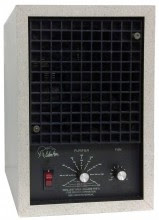Air Purifier for Allergies
Creating an Allergy-Free Haven: How Air Purifiers Can Improve Indoor Air Quality
In an age where allergies are increasingly prevalent, creating a sanctuary free from allergens is a priority for many. Air purifiers have emerged as a crucial solution, offering relief by significantly improving indoor air quality for allergy sufferers. Targeted specifically towards alleviating allergy symptoms, air purifiers for allergies have gained prominence as effective tools in combating airborne irritants.
Understanding Air Purifiers for Allergies
Air purifiers designed for allergies employ advanced filtration systems to trap and eliminate common allergens from indoor spaces. These units typically feature HEPA (High-Efficiency Particulate Air) filters capable of capturing microscopic particles such as pollen, dust mites, pet dander, mold spores, and other airborne contaminants. By targeting these allergens, air purifiers help in reducing allergic reactions and respiratory issues, offering a haven of clean, breathable air indoors.
How Air Purifiers Alleviate Allergies
Air purifiers operate by drawing in air and passing it through a series of filters that effectively capture allergens. HEPA filters, recognized for their efficiency, can capture particles as small as 0.3 microns, making them adept at removing allergens from the air. Activated carbon filters complement HEPA filters by trapping odors and chemical pollutants, further improving indoor air quality. Some units also utilize UV-C light technology to neutralize airborne bacteria and viruses, enhancing the purifier's effectiveness in providing allergy relief.
Benefits of Air Purifiers for Allergy Sufferers
1. Allergen Removal: Air purifiers eliminate allergens, reducing exposure and providing relief from symptoms like sneezing, congestion, itching, and respiratory issues caused by indoor pollutants.
2. Improved Respiratory Health: Cleaner air contributes to better respiratory health, especially for individuals with asthma or other respiratory conditions, offering relief and reducing the frequency of attacks.
3. Better Sleep: By creating a cleaner environment, air purifiers can improve sleep quality by minimizing allergens that may otherwise disrupt sleep patterns.
4. Reduced Odors and Irritants: Air purifiers equipped with carbon filters neutralize odors and trap irritants, creating a more pleasant and comfortable indoor environment.
5. Long-Term Benefits: Consistent use of air purifiers aids in maintaining a healthier living space and can prevent long-term health issues associated with poor indoor air quality.
Choosing the Right Air Purifier for Allergies
When selecting an air purifier for allergies, consider the following factors:
1. Filter Efficiency: Opt for purifiers with HEPA filters, ensuring they capture a high percentage of airborne particles.
2. Room Size Coverage: Match the purifier's coverage area to the size of the room for optimal performance.
3. Additional Features: UV-C technology, ionizers, and smart capabilities are supplementary features that enhance an air purifier's effectiveness.
4. Maintenance and Filter Replacement: Check the ease of maintenance and availability of replacement filters for long-term use.




Comments
Post a Comment